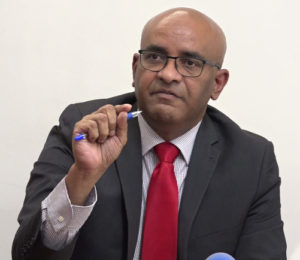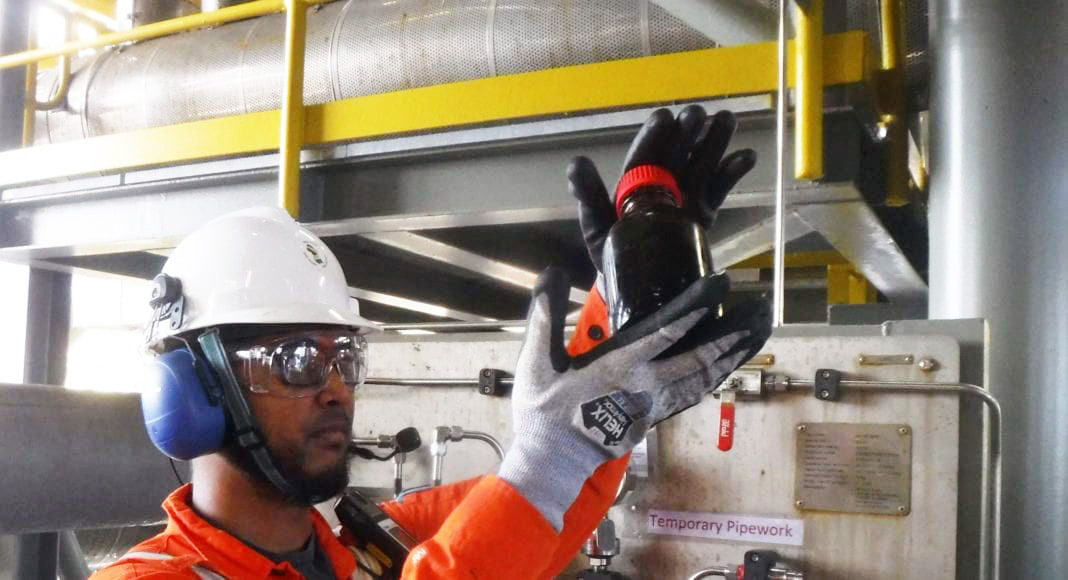Guyana’s Vice President, Dr. Bharrat Jagdeo has affirmed that Government intends to take full advantage of its reserves of ‘light sweet crude’, which are expected to remain highly competitive on the world market in the coming years, even as the oil and gas industry continues to be faced with serious challenges.

While discussing the immediate future of Guyana’s oil industry during an interview broadcast on a local radio programme last month, Dr. Jagdeo asserted, “We have a period in which oil will still be very relevant in the global mix of energy…but it is a window that is closing…”
He explained that the government expects Guyana’s window for profitable oil production to remain open a little longer than in other parts of the world because of several positive factors including a low breakeven cost and the fact that the nation’s crude has a lower sulfur content than heavy, sour oil found in other locations.
Pointing to developments like the stipulation by the International Maritime Organisation (IMO) that 80% of the sulfur content of fossil fuels used in global shipping must be removed, and the fact that powerful nations like the U.S. and China are making policy reforms to increase the use of renewables, Dr. Jagdeo said, “Everybody is looking now for ‘sweet crude’ and we are in the market for that.”
The Vice President’s views reflect recent pronouncements from international oil industry analysts, including Dr. Pedro H. van Meurs, one of the world’s leading experts on upstream petroleum fiscal policy who has worked extensively as an advisor to over 90 governments in a highly-acclaimed career spanning over 40 years.
In his presentation at the inaugural Guyana Oil and Gas Summit in December, Dr. van Meurs said the fiscal terms of Guyana’s oil and gas sector “are just about perfect” right now because they encourage strong developments under low oil prices. “For the moment, if we believe the low oil prices are here to stay, the system of Guyana is actually perfect for the conditions,” he said.
In his presentation, Dr. van Meurs warned about looming threats to the global oil industry from the long-term impact of the COVID-19 pandemic, cheaper energy from renewables, the increased availability of better and cheaper batteries, the emergence of hydrogen-based energy production, and increasing global concern about fossil fuels and their contribution to climate change.
Noting that the long-term negative effects of COVID-19 on oil-producing nations will be “quite significant”, he warned that renewable resources were rapidly replacing fossil fuels in electricity generation, and that renewables—particularly solar and onshore wind—had become cheaper.
He also noted that modern, large utility-sized battery systems now permit continuous 24-hour electricity based on renewables, a threat to the oil industry that is compounded by the fact that hydrogen is becoming cheaper to produce from renewable resources than from fossil fuel. “In principle…hydrogen and electricity can replace fossil fuels in the entire transport sector,” Dr. van Meurs said.
Referring to the threat to oil and gas of nations changing their attitude towards climate change, Dr. van Meurs said it was interesting that in just the last year the UK, the EU, Japan, Korea, and the Democrat President-elect of the U.S.–all have committed to be carbon-neutral by 2050, and China has committed to be carbon-neutral by 2060.
Dr. Jagdeo indicated that the government is taking such projections seriously. “We have this window to get as much out of this sector as possible, maximise production, get the revenue out of the sector; invest it well to build up the capability of this country…” he said.
In this context, he said government could use oil and gas resources to develop world-class infrastructure, deliver high-quality education and health care, and save some of the profits from the industry for inter-generational benefits.




